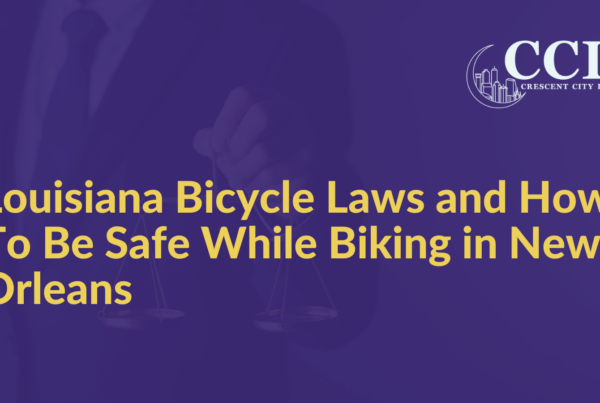Believe it or not, hurricane season is officially here in the Southeast United States. The season began on June 1, and will last all the way through the end of November. Although we here in New Orleans typically see hurricane-like weather in the late summer and early autumn months, it is important to be prepared throughout the entire season. At Crescent City Law, we feel that it is important all of our clients are prepared for a catastrophe so we have put together a guide on how to prepare for a hurricane and what to expect.
The Hurricane Outlook for 2016
The National Oceanic and Atmospheric Administration (NOAA) has predicted a “near-normal” hurricane season for the Atlantic Ocean in 2016. That means that there is a 70% chance of 10-16 “named” storms with 4-8 hurricanes, and 1-4 of those being major, Category 3 or above. That does not mean that any of these storms will find their path to the Greater New Orleans area as has been the case the last few years. But, there is also still a chance that more than one might make landfall in the Southeast Louisiana region. Now is the time to prepare for the upcoming hurricane season. There was already “disturbance” in the Atlantic last week, and a Tropical Storm up the Eastern seaboard, so who knows what could happen for the remainder of the season.
Basic Hurricane Preparedness Tips
According to the Ready website, put on by the government, the most important basic tips for preparing for a hurricane include:
- Have a plan. If you are told you must evacuate your home, that means knowing where you will go and how you will get there. If you don’t know which routes will be open, contact your local emergency management agency for more information.
- If you don’t have to evacuate, but the storm will hit you, make sure you have enough basic and necessary supplies to last you for several days.
- Be in communication with your family now and know each other’s plans.
What Supplies Should I Have Prepared or Hurricane Season?
Most storms don’t require you to evacuate, but they can still put a wrench in your daily plans. Whether you will be evacuating or staying at home, you should always have an Emergency Kit with you that will serve you should you lose electricity, water, and communication with the outside world. This emergency kit should include, but is certainly not limited to, the following:
- Batteries of all sizes
- Battery powered radio
- Bottled water (3 gallons per person, plus extra for washing/flushing)
- Cash
- Canned and non-perishable food items
- Evacuation route map
- Clothing and bedding
- First Aid Kit
- IDs and important documents
- Keys to your property including any cars
- Plastic garbage bags, paper towels and towels
- Toiletries
- Utility knife and tools
What is Considered an Important Document?
When you’re getting yourself prepared for hurricane season, you want to make a waterproof file box of important documents and keep it in a place where you know it will be in an emergency. Some of the important documents you should have in either a safe place (like a bank deposit safe) or in your waterproof file box include:
- Copies of your driver’s license and/or ID card
- Copies of your family’s social security cards
- Your house deed or a copy of your lease
- All your insurance policies (or the passwords to your online accounts)
- Any certificates you might have including birth, marriage or death
- Most recent tax returns, Wills or Deeds
What to Expect During a Hurricane
During a hurricane, the city will usually implement a curfew to ensure that there is no looting taking place. If you are caught by law enforcement out past curfew you could find yourself in jail and with hefty fines. If you really need to drive during a hurricane, you should be very cautious and watch out for standing water. Not only is it dangerous, but if you get stuck you may even get a ticket for putting yourself, other people and property at risk. Yes, I am serious.
If there is a mandatory evacuation, then you should absolutely obey it. If you choose to stay, you are on your own until the storm is over. That means there might not be any emergency vehicles, law enforcement, FEMA or Homeland Security available to help you in an emergency. You are literally on your own.
These are just some basic guidelines as to how to prepare for hurricane season. Another good resource is the Ready government website and the City of New Orleans Ready website.




